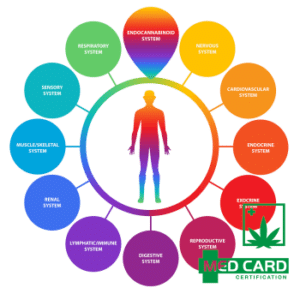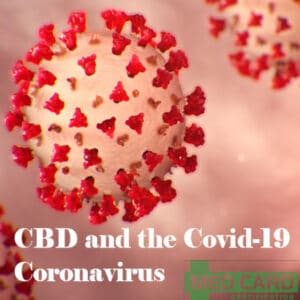
Treating Tendonitis with Medical Marijuana – How It Helps
- Many tendonitis patients are having success treating their condition with medical marijuana.
- Tendonitis pain is caused by inflammation of tendons due to overuse and repetitive movement.
- Cannabinoids found in medical marijuana help treat chronic pain in some patients by reducing inflammation and modulating pain response.
- Cannabinoids can be applied locally at the site of pain using topical preparations or used systemically via oral and inhaled delivery methods.
Can medical marijuana help treat tendonitis and relieve the pain that often accompanies this chronic medical condition? More and more medical marijuana doctors and their patients think so. Medical marijuana dispensaries nationwide are seeing Increasing numbers of tendonitis patients who have been granted medical marijuana cards to help relieve their suffering.
Tendonitis or tendinitis is the inflammation of the tendons — the tissues that connect muscles to bone. Tendonitis is common in athletes or anyone whose work or recreation includes repetitive motion. It can also be caused in some cases by injury, arthritis, diabetes, infection, deformities, or other medical conditions.
Compounds found in medical marijuana called cannabinoids help to reduce chronic pain in some patients suffering from tendonitis by reducing inflammation. The reduction in inflammation also helps to slow the progression of the condition.
Cannabinoids also have the ability to modulate the brain’s pain response in some tendonitis patients suffering from chronic pain.
Medical marijuana is increasingly being seen as a safe and natural remedy for tendonitis. Cannabis is completely non-toxic and non-addictive with very few if any unwanted side effects when used properly.
According to numerous studies, cannabinoids including THC and CBD as well as others such as CBG and CBN offer anti-inflammatory properties that may provide relief for patients with chronic pain caused by tendonitis.
For patients who are interested in taking a deeper dive into studies on medical marijuana for treating pain, links to these and several other studies can be found at the end of the article on MedCard for Chronic Pain.
How does medical marijuana help treat tendonitis pain?
The human body contains a self-adjustment system in which signaling molecules produced by the brain interact with receptors on cells throughout the body. Compounds called endocannabinoids transit the bloodstream and relay instructions to the rest of the body such as initiating and extinguishing inflammatory response and pain response. The entire system is referred to as the human endocannabinoid system or ECS.
Compounds found in medical marijuana known as phytocannabinoids mimic some of the effects of endocannabinoids including regulating the inflammatory response and the perception of pain. Reducing inflammation can also help to slow the progression of conditions such as tendonitis in some patients.
How to treat tendonitis with medical marijuana
There are two ways that medical marijuana can be used to treat chronic pain due to tendonitis. Topical applications such as cannabinoid-infused skin creams can be used at the site of pain. Systemic relief can be produced using inhaled applications such as smoking, vaping, dabbing, and inhalers. Oral applications such as oils, tinctures, capsules, and edibles also provide systemic relief.
Patients need to keep in mind that cannabis is an herbal remedy. Each strain of medical marijuana produces a unique ratio of the various cannabinoids as well as active aromatic compounds called terpenes. As such its effects can vary significantly. Some experimentation might be required to find a marijuana strain with an ideal ratio of CBD (non-intoxicating) and THC (intoxicating in sufficient dosages) for each patient.
When pain comes on suddenly, inhalation methods such as smoking and vaping medical marijuana or cannabis concentrates will offer the fastest relief. This is because cannabinoids enter the bloodstream directly through the lungs. However, some patients find it more difficult to control the dosage when smoking medical marijuana or vaping cannabis-infused oil. Oral applications such as capsules and edibles can be produced with specific levels and ratios of individual cannabinoids for more accurate dosing. However, the onset time of effects is slower.
Tendonitis patients should not be self-medicating. It’s always best to consult with a doctor who is knowledgeable in the use of medical marijuana to treat tendonitis pain. Qualified budtenders at medical marijuana dispensaries can also help patients choose an appropriate application for their condition and lifestyle.
VIDEO: Cannabis and Chronic Pain

Additional Reading
Medical Marijuana Links:
Research studies on medical marijuana for chronic pain
- (PDF) Cannabidiol (CBD) and its analogs: A review of their effects on inflammation
- Cannabinoids as novel anti-inflammatory drugs
- Medical Marijuana and Chronic Pain: a Review of Basic Science and Clinical Evidence
- Medical Marijuana for Treatment of Chronic Pain and Other Medical and Psychiatric Problems
- Journal of Pain – A randomized, placebo-controlled, crossover trial of cannabis cigarettes in neuropathic pain
- Neuropsychopharmacology – Comparison of the analgesic effects of dronabinol and smoked marijuana in daily marijuana smokers
- The Journal of Pain – Low-dose vaporized cannabis significantly improves neuropathic pain
- British Journal of Clinical Pharmacology – Cannabinoids for treatment of chronic non-cancer pain; a systematic review of randomized trials
- Cannabis for the Management of Pain: Assessment of Safety Study
- The effect of medicinal cannabis on pain and quality of life outcomes in chronic pain: A prospective open-label study
- Medical cannabis use is associated with decreased opiate medication use in a retrospective cross-sectional survey of patients with chronic pain















